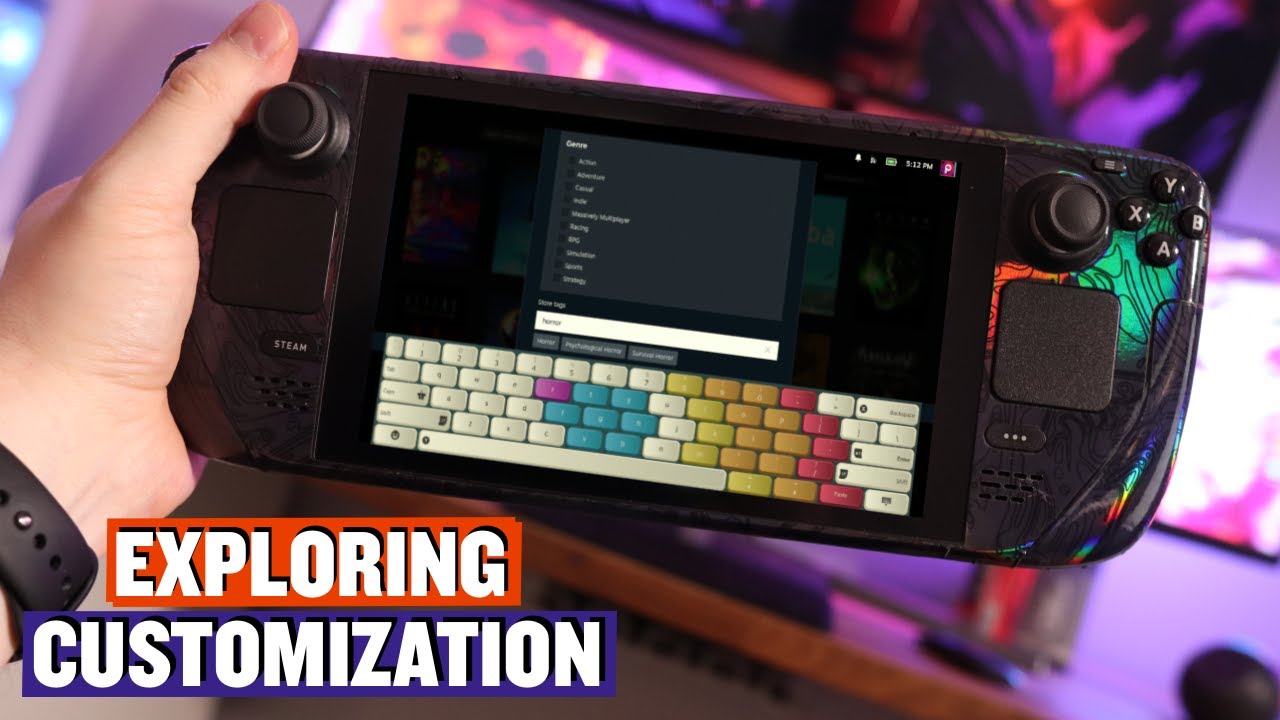The Rise of Gamepad Input: Windows Setup Steps Up for Portable Gaming
Gaming handhelds are shaking up the gaming landscape. With devices like the ROG Ally and Lenovo Legion Go entering the spotlight, manufacturers are racing to create Windows-powered alternatives to the beloved Steam Deck, despite questions about Windows 11’s suitability for these compact consoles.
 The new era of portable gaming is here.
The new era of portable gaming is here.
Fortunately, Microsoft has recognized the burgeoning demand for improved user experience on these platforms. The latest Windows Insider build unveils a gamepad keyboard feature designed to streamline text input on handheld gaming systems. As detailed in the Windows Insider blog, this update introduces a new Gamepad keyboard layout that allows players to type with much greater efficiency using Xbox-standard controllers.
“This update starts the rollout of a new Gamepad keyboard layout for the on-screen keyboard,” mentions the blog post.
The gamepad keyboard facilitates quicker typing by automating specific functions: the X button performs a backspace error fix while the Y button acts as the spacebar when the on-screen keyboard is activated. Furthermore, the new layout organizes keys in a grid, making it simpler for users to navigate via thumbstick or D-pad—a much-needed enhancement for gamers who find traditional typing cumbersome.
 Modern solutions for modern gaming challenges.
Modern solutions for modern gaming challenges.
These are exciting developments in the 22631.4387 build of Windows 11 (23H2), but the remainder of the modifications includes mostly minor tweaks—a feature to suppress reminders about pop-up notifications and an option to remap the often-criticized Copilot key on newer laptop keyboards. While the enhancements are cited, some larger changes are understandably set to roll out later.
The Challenges Windows 11 Faces
Despite Microsoft’s efforts, the landscape of portable gaming is fraught with challenges linked to the persistent problems of Windows 11. Many gamers and developers describe frustrations when trying to run the operating system combined with various custom interfaces and launchers that cater specifically to these smaller, keyboard-less devices. Performance drops are common in this setup, thereby reinforcing the Steam Deck’s status as the leading handheld gaming device.
Indeed, many users have resorted to crafting their own SteamOS derivatives to enhance performance on Windows machines, leading to speculation that Valve might release official SteamOS builds for devices like the ROG Ally, an eventuality that would undoubtedly delight the gaming community.
 Continual evolution is essential in portable gaming.
Continual evolution is essential in portable gaming.
The Portable Revolution
With handhelds storming the gaming market, it’s clear that the sector is evolving. What began as niche devices have morphed into serious contenders in competitive gaming, with options for powerful setups that challenge traditional consoles and PCs. Windows’ latest updates could be pivotal in allowing these devices to maximize their potential with efficient controls and input methods.
While Windows 11 may have its drawbacks, developments like the gamepad keyboard feature present an affirmative outlook for portable gaming enthusiasts. As manufacturers refine their designs and capabilities, there’s little doubt that handheld gaming will only get better—a trend that gamers and tech aficionados alike will eagerly watch unfold. In an age where convenience and performance are paramount, updates like these signal that the future of gaming lies in the versatility of handheld devices.
The focus on user experience, particularly with inclusive input options, demonstrates an industry that’s not just growing but adapting to the changing landscape of how we play. Portable gaming devices are not just toys anymore; they are serious platforms that enhance the way we enjoy games.
In conclusion, as portable gaming continues its ascendance, players can look forward to more seamless interactions, engaging updates, and a robust library of games that make the handheld experience even more enticing. For those tired of the barriers often posed by traditional systems, the time is ripe to embrace the innovations ahead.
Explore the possibilities of portable play and stay tuned as we delve deeper into this exciting evolution of gaming.














